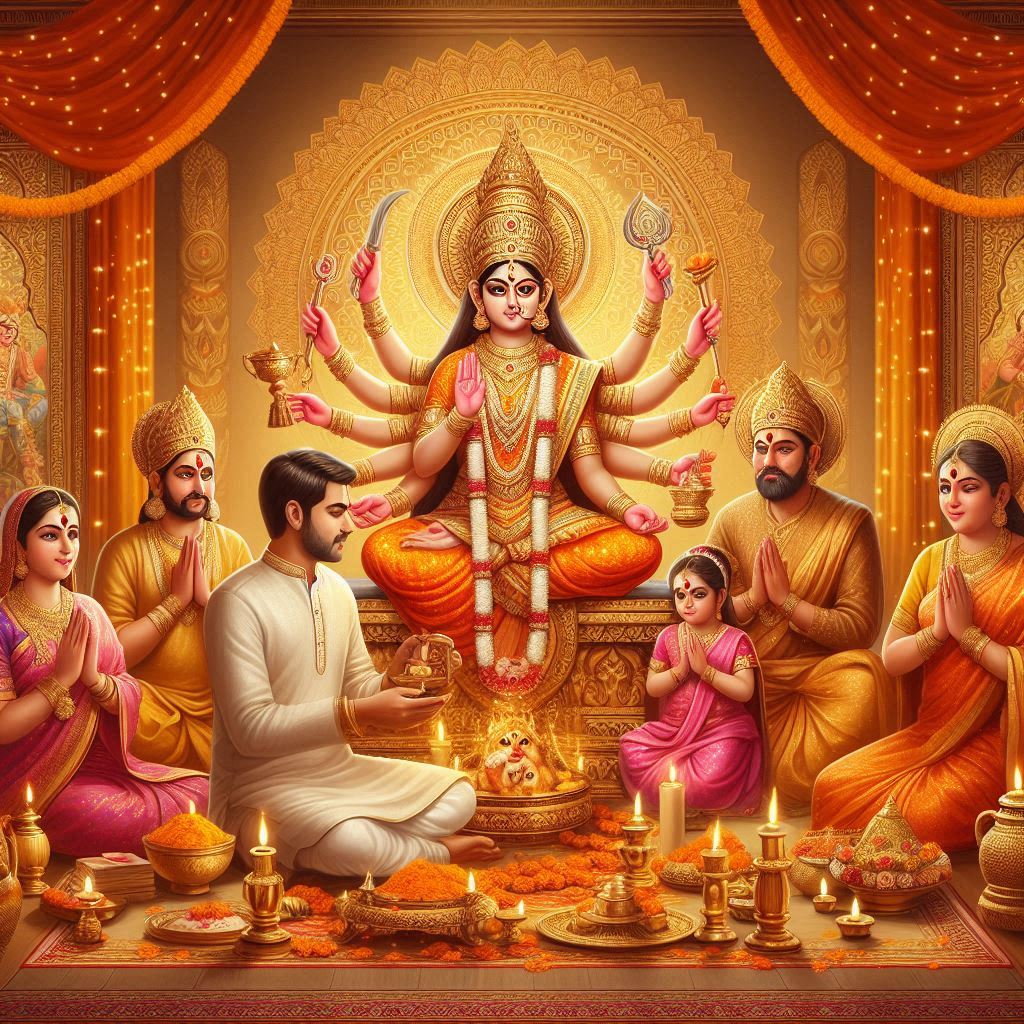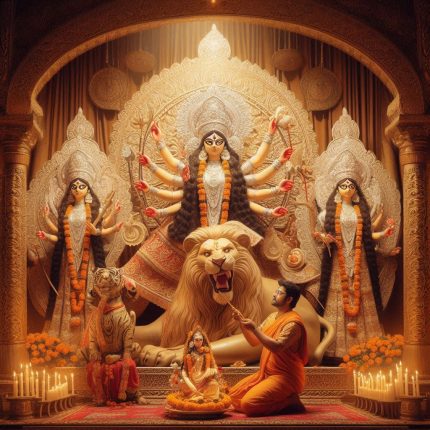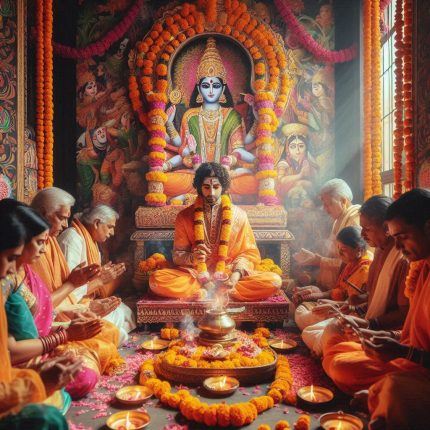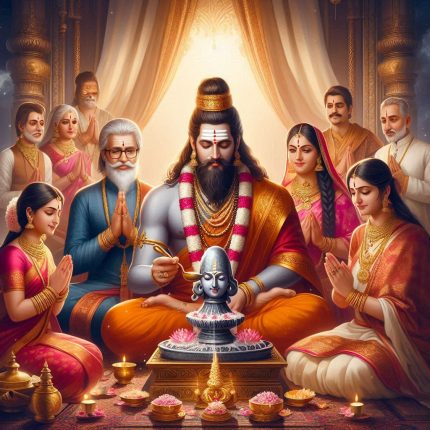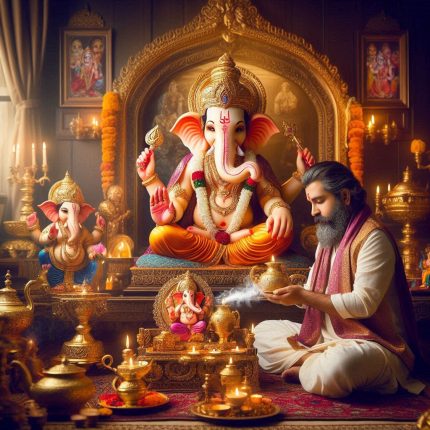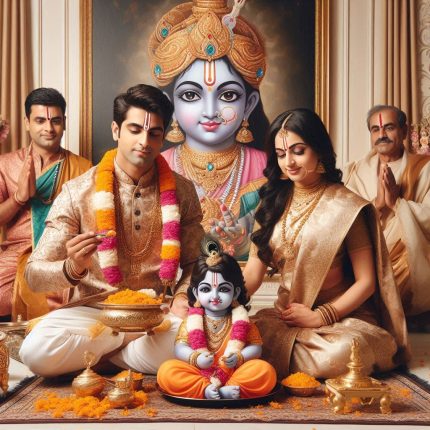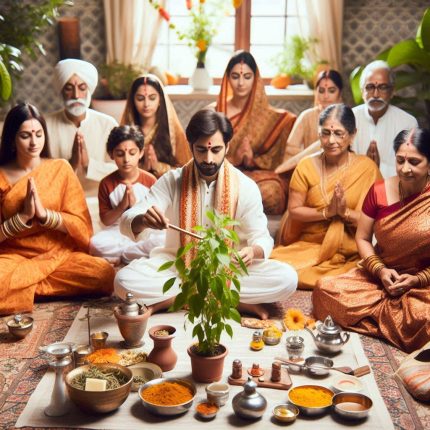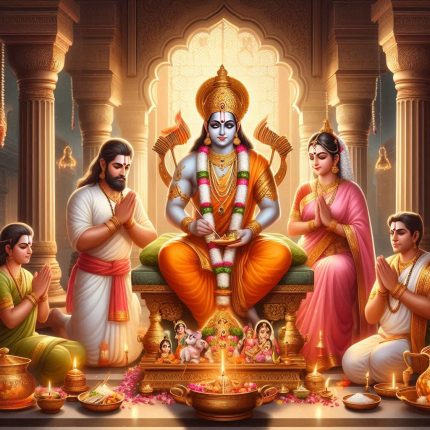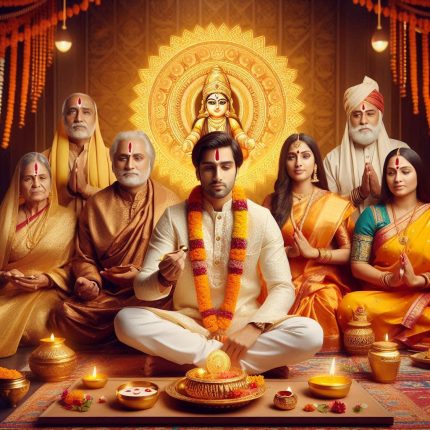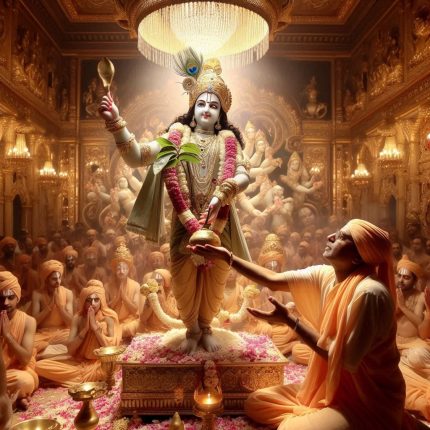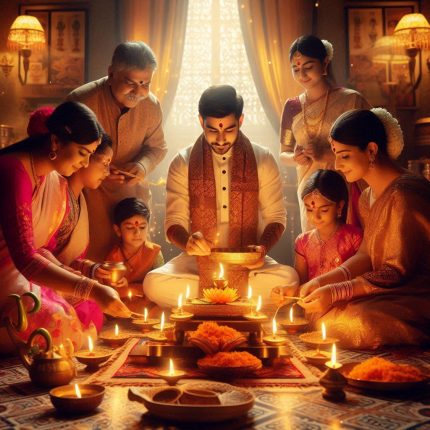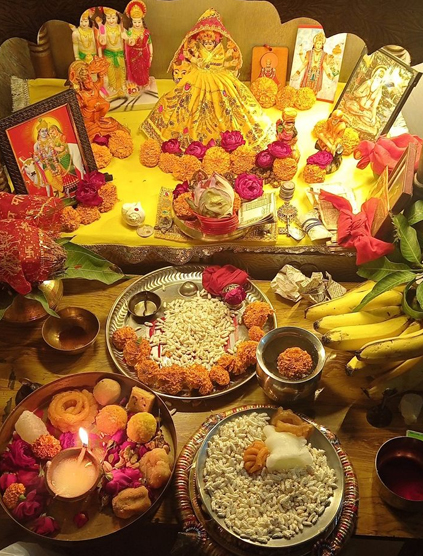Navratri Puja: A Celebration of Divine Feminine Energy
Samagri
for Puja:
Haldi [organic] (20gm), Kumkum [organic] (20gm), Tulsi Mala (1), Diya Batti (5), Beetle Nuts (5), Desi Ghee (20ml), Honey (20ml), Jaggery (Gudh) (20gm), Akshata [Yellow rice] (20gm), Yagno-paveetha (5), Karpoora [camphor] (5Tabs), Red/White/Yellow Cloth(1 mtr), Prasad [Laung, Elaichi, Mishri] (20gm), Mouli (25mtr), Ganga Jal (15ml), Durva [fresh] (1), Agarbatti (6)/Dhoop (2), Dakshina (100INR), God Idols (pair), Sambrani (2), Sambrani Holder (1), Kalash [small copper] (1), Panchpatra [small copper] (1), Diya Holder (2), Panchamrit spoon (1), Karpoora Holder(1), includes perishables [Beetle Leaves [fresh] (9), Flowers [fresh] (incl mala), Tulsi [fresh], Mango Leaves [fresh] (7)]
Small Havan:
Cow Dung Cake (2), Mango Wood (250gm), HavanSamagri [20+ Grganic Herbs] (100gm), Ghee (20ml)
Yajman to provide:
Curd (100gm), Milk (100ml), Mithai (250gm), Fruits [5types], Coconut (1), HavanKund, SuchiSarva (Havan Spoon) (1), Kalash [big] (1), Bowl [preferably copper/silver] (1), Spoon [preferably copper/silver] (1), Utensils [2 big Plates (for Aarti/Samagri), disposable Plates, Bowls & Spoons], First solid food (preferably Kheer or Payasam)
Importance and Significance of Navratri Puja
Navratri holds deep significance in Hindu culture as it represents the cycle of life, death, and rebirth. The festival is a time for introspection, devotion, and celebration of feminine power. By performing Navratri Puja, devotees seek the goddess’s blessings for strength, protection, and guidance in overcoming life’s challenges. It is a time to cleanse the mind and spirit, cultivate positive energy, and strengthen one’s connection to the divine.
Benefits of Navratri Puja
- Spiritual Upliftment: Engaging in the puja enhances spiritual awareness and fosters a deeper connection with the divine.
- Purification: The rituals help cleanse the mind and environment, promoting positivity and well-being.
- Attracting Prosperity: Devotees seek blessings for health, wealth, and success in personal and professional endeavors.
- Community Bonding: Navratri celebrations often involve communal participation, fostering unity and shared devotion among participants.
Occasions to Perform Navratri Puja
Navratri Puja is performed during the nine nights of the festival, particularly during:
- Sharad Navratri: The most widely celebrated Navratri, occurring in September-October.
- Chaitra Navratri: Celebrated in March-April, honouring the goddess’s arrival in spring.
- Special Family Events: Such as weddings or significant life milestones, invoking blessings for new beginnings.
Navratri Puja Vidhi (Procedure)
- Preparation: Clean the puja area and set up an altar decorated with flowers, lights, and a picture or idol of Goddess Durga.
- Setup: Place a sacred vessel filled with water and a coconut, symbolizing abundance. Arrange offerings such as fruits, sweets, and grains.
- Invocation: Begin the puja by invoking Lord Ganesha to remove obstacles. Light the diya (lamp) and offer prayers to Goddess Durga.
- Offering Prayers: Recite specific mantras and shlokas dedicated to the goddess, expressing devotion and seeking her blessings.
- Puja Rituals: Perform aarti, offer flowers and sweets, and make symbolic offerings like rice and sugar, representing abundance and gratitude.
- Navratri Fasting: Many devotees observe fasting during these nine nights, focusing on spiritual practices and offering prayers.
- Community Celebrations: Participate in cultural activities such as Garba and Dandiya, celebrating the goddess’s energy and fostering unity.
- Distribution of Prasad: Share the prasad (offerings) with family and friends, symbolizing the blessings received from the goddess.
Navratri Shubh Muhurat
The Shubh Muhurat for Navratri Puja can vary based on astrological timings. It is considered auspicious to begin the rituals on the first day of Navratri, known as Pratipada, with specific timings often determined by consulting a priest or astrologer.
By celebrating Navratri Puja, devotees honour the divine feminine and seek blessings for strength, prosperity, and protection. This vibrant festival serves as a powerful reminder of the goddess’s transformative energy, inspiring individuals to embrace love, resilience, and harmony in their lives.

